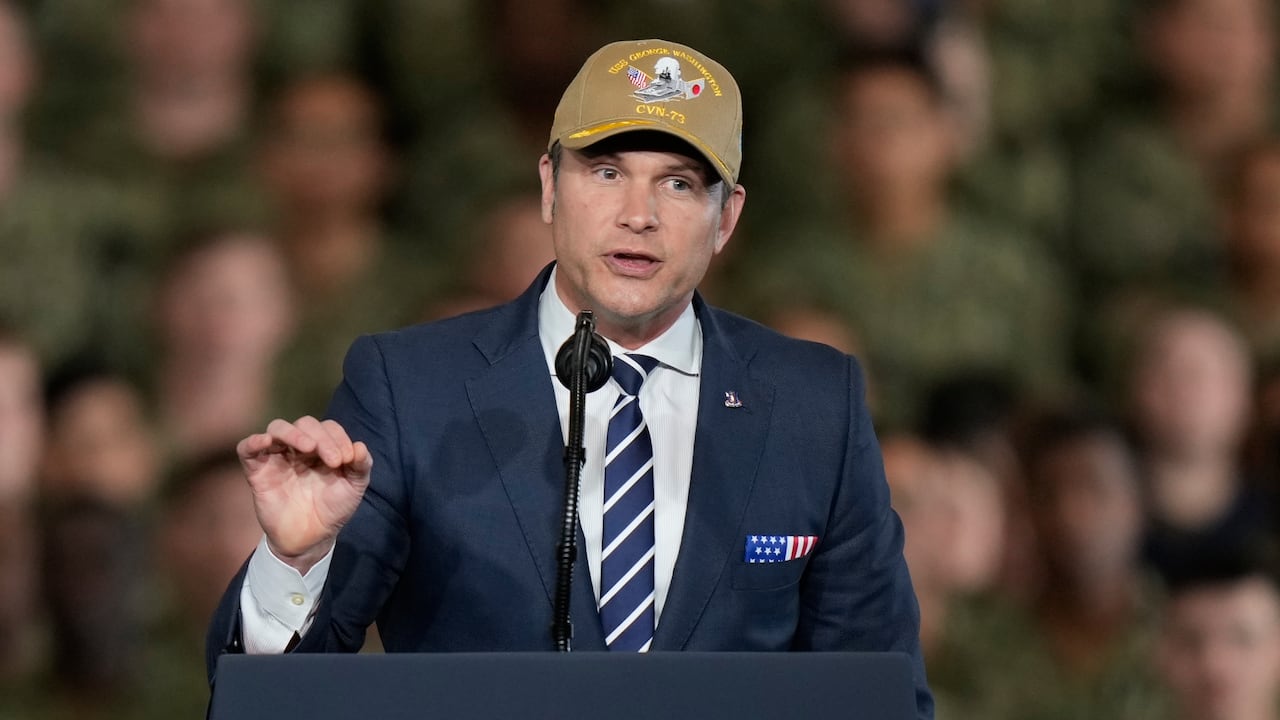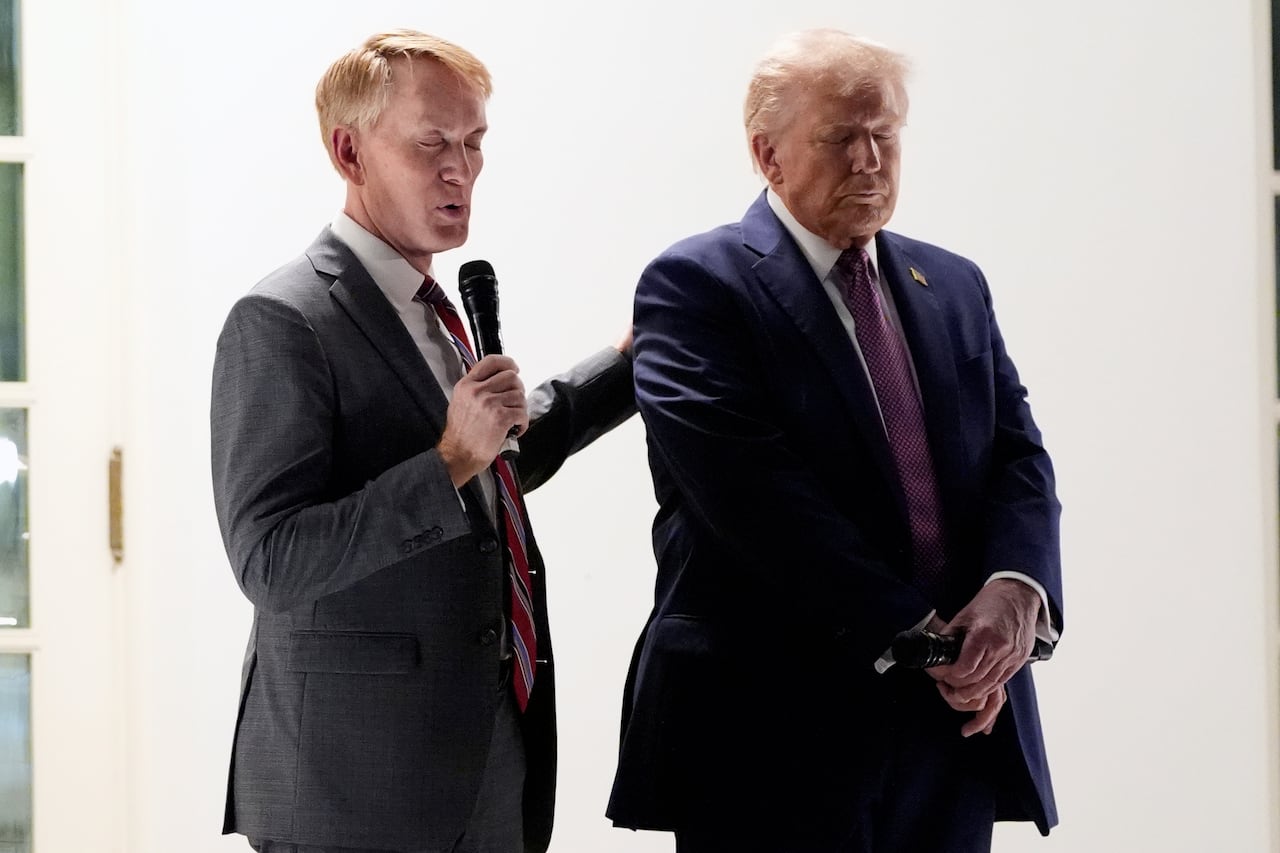
At least 57 people have been killed in military strikes that UN experts say likely violate international law

A series of strikes conducted by the U.S. military on boats in the eastern Pacific Ocean killed 14 people and left one survivor, U.S. Defence Secretary Pete Hegseth said Tuesday, alleging those on board were drug traffickers.
In a post on X, Hegseth said Mexican authorities took over the search-and-rescue operation for the lone survivor from the three strikes, which took place on Monday.
"The four vessels were known by our intelligence apparatus, transiting along known narco-trafficking routes, and carrying narcotics," Hegseth said, without providing any evidence.
Hegseth posted a roughly 30-second video, which appeared to show two vessels close together in the water before exploding. Another part of the video shows a vessel moving in the water, which then explodes.
After a series of strikes in the Caribbean beginning on Sept. 2, the U.S. government announced for the first time last week that its deadly operations had extended to Pacific waters.
Experts have questioned the legality of the strikes, which have killed at least 57 people. There has been no indication that other efforts were made to halt the shipments, and under normal circumstances, the U.S. Coast Guard is involved in drug interdiction.
U.S. military buildup in the Caribbean
In his first day in office earlier this year, Trump signed an executive order designating drug cartels as foreign terrorist organizations.
On Tuesday, Hegseth said that "these narco-terrorists have killed more Americans than al-Qaeda," drawing a comparison between violent attacks and drug transactions that are usually made with consent.
The strikes in the Pacific come against the backdrop of a U.S. military buildup in the Caribbean that includes the aircraft carrier USS Gerald R. Ford, guided missile destroyers, F-35 fighter jets, a nuclear submarine and around 6,500 troops.
Last week, the U.S. military flew a pair of supersonic heavy bombers up to the coast of Venezuela, raising speculation that Trump could try to topple Venezuelan President Nicolas Maduro. The Trump administration has increased a reward for the capture of Maduro to $50 million US and has alleged the Tren de Aragua gang is operating under the auspices of Maduro's government.
While the administration has publicly disseminated videos of strikes and has said the alleged targets were drug traffickers, there has been a dearth of information on the occupants of the boats, or the specific cargo that was on board.
It's also not clear that any contraband on the boats was headed to the United States. According to experts on international drug flows, Trinidad and Tobago, near the Venezuelan coast, is often a transshipment point for packages destined for Europe or West Africa.
The U.S. has been wracked with tens of thousands of drug-related deaths over the past decade, though rates fell in 2024 from the previous year. The large majority of deaths have involved the consumption on opioids, though in some cases, cocaine has been adulterated with fentanyl.
Venezuela's neighbours Colombia and Bolivia are major producers of coca plants, used to produce cocaine.
U.S. Congress members, including some Republicans, have expressed concern about the lack of detail and transparency from the administration regarding the strikes.
"If this was happening with this level of insight under the [Joe] Biden administration, I'd be apoplectic," Republican Sen. James Lankford, of Oklahoma, admitted last week in a C-SPAN interview.

However, the Republican-controlled Senate has voted down a Democratic-sponsored war powers resolution that would have required the president to seek authorization from Congress before further military strikes.
Asked last week whether he would request Congress issue a declaration of war, Trump shrugged off the idea.
"I think we're just going to kill people that are bringing drugs into our country, OK? We're going to kill them, you know? They're going to be like, dead," Trump said during a roundtable at the White House with homeland security officials.
Venezuela on Sunday condemned what it said was a military provocation by neighbouring Trinidad and Tobago. Joint military exercises between the U.S. and Trinidad and Tobago are currently underway.
On Monday, Venezuela said it was suspending energy agreements with Trinidad and Tobago.
"The prime minister of Trinidad has decided to join the war-mongering agenda of the United States,” Venezuela's Vice-President Delcy Rodríguez said on national television.
Internationally, in addition to Venezuela, the leaders of Brazil, Colombia and Mexico have criticized the boat strikes.
Colombian and Trinidad and Tobago citizens have said family members have been killed in the strikes. They have denied their family members were involved in the drug trade.
Actions amount to 'extrajudicial killings': UN experts
United Nations experts said last week in a statement the strikes are "an extremely dangerous escalation with grave implications for peace and security in the Caribbean region."
They acknowledged Trump's justification for the military action, but said: "Even if such allegations were substantiated, the use of lethal force in international waters without proper legal basis violates the international law of the sea and amounts to extrajudicial executions."
The independent experts, who are appointed by the UN Human Rights Council, said the strikes violate Venezuela's sovereignty and the United States' "fundamental international obligations" not to intervene in domestic affairs or threaten to use armed force against another country.
Currently, former Philippine president Rodrigo Duterte is on trial at the International Criminal Court over allegations of approving extrajudicial killings of drug offenders and traffickers when he was in office, as well as earlier, when serving as Davao City mayor.
While the U.S. doesn't recognize the jurisdiction of the ICC, Arizona Sen. Mark Kelly said last week in an interview with MSNBC that he was worried about those who helped carry out the questionable orders. The statute of limitations can stretch years for some crimes in U.S. military jurisprudence, and for capital crimes, they don't apply at all.
Kelly also wondered, given the circumstances, why U.S. Navy Adm. Alvin Holsey decided to retire at year's end, two years ahead of schedule. The four-star admiral is the head of U.S. Southern Command, which oversees operations in Central and South America.
Holsey has not spoken publicly.
Despite expressing the view that those on boats allegedly containing drugs are enemy combatants, the U.S. expatriated two previous survivors to their home countries — Colombia and Ecuador — instead of apprehending them.
With files from Reuters